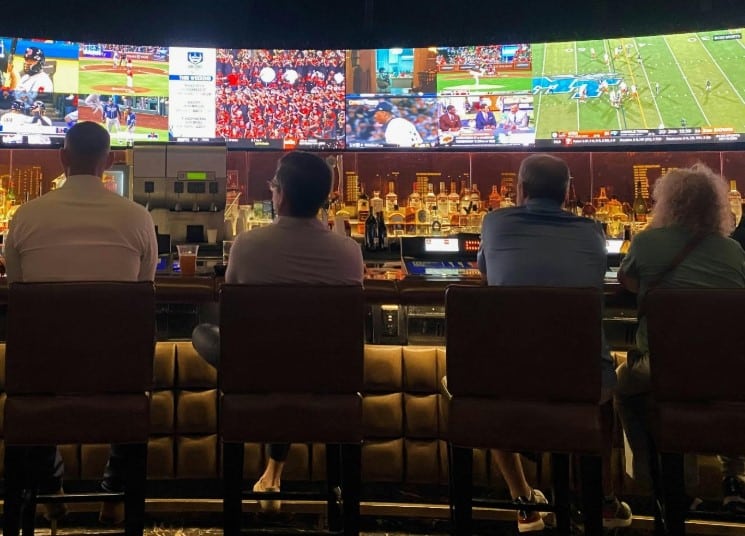
For any entity or personality who looks to make as much money as possible in sports, gambling money has become the gift that keeps on giving. While some see this phenomenon as tasting water from a poisoned well, it becomes increasingly apparent that gambling money is something that sports cannot really go on without if they are to raise their bottom line and increase profits.
Naturally, gambling on sports (otherwise known as sports betting) is just as much of a consumer-first experience as actually watching sports. It’s a phenomenon that begins with the player having an active interest in a sport, watching it, and then choosing to bet on it if the legal framework allows it. In most markets where there is legal access, online gambling operators are already doing their utmost to increase their visibility.
Given the situation, it’s clear as day that cultural effects are prone to joining financial implications. This is visible in popular culture, but it also raises concerns about the sanctity of a game, not to mention the fairness and legitimacy of the product. Scandals like Calciopoli or the Black Socks situation prove that corruption has always been around, especially when gambling is a clandestine racket rather than a legal entertainment avenue.
In the age of digitalization and the immense sports betting market (worldwide), we are seeing trickling effects that show us that the impact continues to grow as gambling’s influence rises. This article will be a foray into some key factors of gambling influence in the sector of sports broadcasting and casual viewership.
More Money, More Teams, More Action
The influx of gambling money creates a conundrum that feels like a paradox.
On the one hand, you have growing revenue from increased viewership (which creates the biggest broadcasting deals) and sponsorship opportunities. Both gambling and crypto services are increasingly visible in this scenario. This means that the proverbial pie continues to grow larger and tastier for whoever is already a shareholder in the current competition.
On the other hand, you have the current shareholders who are seeing their assets and liquidities rise dramatically, which makes them reluctant to have their piece of the pie diminished because of dilution.
This means sharing their revenue with new clubs (whether it’s through format expansion a la UEFA Champions League, or league expansion in American sports). The conundrum is about creating more competition with more opportunities for parity, not to mention attracting fans from other markets. The paradox is that growth opportunity means an initial loss in up-front money.
Naturally, broadcasters, streaming platforms, and gambling operators would certainly want more product. More teams mean more bets, more props, more lines, and more match days. It’s something that creates more content and attracts more attention from viewers.
Now, the impact on broadcasting goes as such: gambling (among other things) money creates more wealth, which makes expansion more feasible. Expansion equates to more broadcasted events and more betting opportunities. For the viewer, it means that you have more content to go about, even if it may be taxing in terms of available betting money and watch time.
Having More Than Fandom on the Line
This argument focuses more on viewership rather than broadcasting as an industry. However, they’re intrinsically intertwined, which proves that the consumer economy has very entangled webs of influence across all facets.
In short, gambling gives the sports fan (a viewer – a number on the board) the opportunity to care about more than just the outcome of a game. For different reasons, both in the past and present, sports clashes and teams represented cultural aspects like religious denomination, social class, or geographical pride. These days, the corporatization of major sports brands has made many of these ideas redundant, but it seems that gambling has taken their spot.
As viewers and gamblers, consumers want to watch a game to see if the team they bet on wins, bringing them closer to a successful bet. Others may be looking very closely at certain individual performances since proposition bets are on the line. Every misstep or clutch shot means more than just fandom – it can also mean money in the bank.
Impacting Interest in Other Teams
This reality has become really cynical if you think about it. Think of it like this: you are betting on a team that is a direct rival to the one you support. You would typically want them to lose because you hate them, but it so happens that your stake includes them winning since the odds are too good to pass. Maybe they have a player who is on your fantasy team and wants to do well.
How do you treat this situation? Do you root for them to succeed in getting your money, or are you just reluctantly seeing if they win and say that it’s just business? Maybe you stream or watch their game to see what’s going on, but you are only fractionally interested in them.
For the broadcaster, it matters not—you clock into their transmission, thus bringing out the rating and generating money for them. Gambling attracts viewership from people who would otherwise have no incentive to spread their attention toward a product that they have no horse in.
You feel compelled to consume more sports content because of gambling, and the broadcaster relishes in your decision to do so.
Fan Overreaction
This is the most problematic factor that I’ve seen so far on the internet because it dilutes the idea of humanizing athletic effort. Teams and players stop becoming agents of entertainment and representation because they become possible agents of get-rich-quickly efforts.
From threats to insults to tasteless memes, online engagement tends to get off the rails quite quickly. If a gambler used their online casino bonus in sports betting (assuming it’s possible) and the bet they placed is on a team that performs well below expectations, you can definitely see fans start whining about losing their bet. In other cases, a team victory with an underwhelming performance from a bet-on player becomes a bittersweet moment.
At the end of the day, broadcasters also have their own social media appanages. If there is a ruckus on social media about such an overreaction and an ensuing digital fight, it’s only fan engagement for the holders of said accounts. You may have some deleted comments here and there, but not much. All attention is an asset if viewership and engagement are your currency, and gambling-related situations can certainly provide that.
Conclusion
We don’t have too many big words about this idea other than to encourage every reader to be respectful about how they go about treating players. Teams may be cynical corporations, but many athletes deserve at least a human bit of respect.
Moreover, we’d also like to remind you that gambling will always have side effects if abused, so don’t forget to play responsibly if you’re the betting type!














